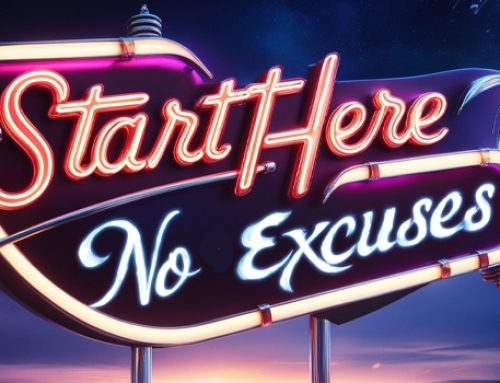You may not be aware, perhaps you haven’t looked too closely at it. As one delves deeper into the course of history, and into the patterns that are set into cycles you will find that as the saying goes, “History tends to repeat itself” In fact, if you are studious enough, beyond the advancements of technology that speeds up the cycles, you can clearly see those patterns establish and be aware of the type of things that may be on the horizon for our communities, countries and the globe as a whole.
With these economic numbers on display, along with the machinations of those who attend Davos each year, it’s not a question of “if” but “when” the next major worldwide economic crisis will happen. If the next big economic collapse around the corner is anything like the great depression (which it will be, but like 18x worse) international trade will fall, unemployment will rise, food and work will become scarce, and most folks today won’t know what hit them.
If this all was likened to the sinking of the Titanic, we have already hit the iceberg, taken on tons of arctic water, and listed to one side… the ship we are on is creaking from all the pressure and stresses and in danger of splitting in two; things have already started happening, it is time to man the lifeboats!
If we look to the past for what our great grandparents did to survive such harsh times, we can learn from their example and stand better prepared. To remain self reliant this includes stocking up on essential household items before the next great economic hurricane.
Here’s a list that we at ThatAquaponicsGuy recommends:
 Books
Books
There are two types of books we are talking about here. The first kind are the ones that can be used as references when you have certain questions about the non-electronic way of life. As those who are trying to get us into the Great Reset, the access or proliferation of electricity, electronic devices and more importantly access to the Internet may be curtailed or even prohibited. As they are trying to shut down power plants that run on coal and rely on the more unreliable solar and wind power they will have ultimately to limit it somehow.
At any rate, the how-to books on setting up an outdoor kitchen, or make a steam boiler, blacksmithing, or even how to treat sicknesses of your animals will all need to be locally stored or in hardcopy form. The wholesale knowledge on how to keep your food cold without refrigeration or the best way to make our resources stretch further are not generally known and can be found in books that have been published in the 20th Century (or earlier). It is wise for you to start that survival library looking for those that can most benefit you in times of trial and tribulation such as what may be on the horizon.
The other type of books are those that can help pass the time in an entertainment type of capacity. Again, movies, TV and the devices to view them (or the electricity to run them) could be limited to a select few or to minimal hours for use. It would surprise you what a good book can become a creature comfort for a tired mind in hard times.
During the great depression nearly one hundred years ago, luxuries were few and far between. It’s no wonder why people treasured the time they could afford to enjoy entertainment with family. (and reused their tinfoil, kept money under the bed instead in a bank, and patched worn out clothing… but that can be in another article another time).
Although you don’t need books to survive, it’s good to have an outlet. This is especially true when you’ve suffered heavy blows to your finances, home, family life, and your pantry. When times seem bleak, you will be happy to have a good book or two around.
Remember the example of Abraham Lincoln, who raised his state and stature by the books he read in the backwoods, and at night by candlelight.
 Salves, Creams, Sunblock
Salves, Creams, Sunblock
It is good to get a stockpile of your favorite moisturizers, medicinal salves and sunblock as you can. Depending where you are living those things can be as essential as food and shelter. Whether it be an arid or humid climate, perpetually cloudy or sunny we will always have a need for those things that keep our skin from drying out, or compensate for the moisture we are exposed to.
It is even better yet if you know and practice how to make your own salves, creams, and sunblock. If you know the ingredients and can aptly put them together in your containers then you never have to worry if the manufacturer of your favorite brand going out of business do ya?
 Set of Knives
Set of Knives
Like books this is twofold as well. You are usually familiar of the kind you utilize in your cooking for the various chopping cutting, peeling and dicing. You need to invest in a reliable set that have the reputation of being long lasting. There is no endorsement deal in place but we are still using a set of Cutco knives that were bought over 30 years ago. It is not only how sharp the blade remains, but also the construction and materials used for the handle, and the tongue and groove. Look for quality then for price when it comes to knives.
Always in times of hardship there has been a need for a blade of some sort. Not necessarily talking about a broadsword or a cutlass per se, although having one and knowing how to use them won’t hurt either, but it is the type of blades that you will need to use for scraping, skinning, whittling, etc. etc. There is nothing better having the right tool for the right job, and when it comes to things like butchering or dressing an animal for food, it is that much harder when you only have a pocket knife on hand.
And of course, when it comes to self defense having a good sized knife is better than not having one at all.
Light sources – Candles, Kerosene, Lamp Oil
If an economic emergency like the great depression happened today, it’s easy to imagine what that could mean for public services like electricity. Blackouts and service disruptions could make your light and power sources unpredictable, to say the least.
Most people already have some kind of preparation in place for blackouts due to things they’ve experienced in the past like bad weather or service interruptions. But if this is a long term scenario, having a source of light at night can really help you out from sitting there in the dark all night. Sure you can light a fire, but that torch can’t necessarily go indoors with ya.
While the old timey sources of light like that of a candle or a kerosene lamp won’t illuminate a room as well as a light bulb, it will still provide you with enough light to work with when the sun goes down.
 Cooking Basics – Baking Soda, Flour, Oils
Cooking Basics – Baking Soda, Flour, Oils
It is always best to keep a good supply of the basics when it comes to cooking. Even after all else fails, having a bit of flour, oil and water on hand will at least put something into your gullet and keep starvation away for at least another day. Identify for yourself what you consider as basic for your cooking needs and then stockpile the crap out of them. Rotate the newer for the older and keep it cycling through, some of these basics can go stale or lose its bio-availability after a while.
For instance, a super versatile and shelf-stable, baking soda is cheap and pretty much always stocked in stores. However, just because it’s inexpensive now doesn’t mean it will stay that way. When people start to realize just how valuable this stuff is, there’s a good chance you will have trouble finding it at all – at least not at a fair price.
You can use baking soda for a myriad of cooking, cleaning, and hygienic purposes.
There are so many great things baking soda can do and it is a pleasure to have in any cooking stockpile.
 Cooking Basics – Utensils, Measuring Cups, Spoons
Cooking Basics – Utensils, Measuring Cups, Spoons
A close second to that is the items you can use to actually do the cooking. We reckon that with the limited access to electricity, food mixers, blenders, juicers, and the like that you have to plug in to use are going to be non-functional for every day utilization. Mixers, the cake hand-beaters, the spatulas, various sizes of measuring cups and spoons are needed to get the recipe you are cooking from scratch just right. The younger crowd especially don’t have these on hand, and rarely know how to use them when they do.
If you ever have had anything that had too much salt, or baking powder, or any other ingredient, you will know the importance of having the correct measurement for what you choose to cook. And in hard times, you don’t waste any food, even if it tastes off from a mixing mistake.
Gloves
You might not think of this right off but we can’t tell ya how many times we have alleviated a chance of a blister or two with the right set of gloves. Leather gloves, gardening gloves, latex gloves, rubber gloves, kitchen gloves, cold weather gloves. If your hands aren’t as tough as leather, and odds are they won’t be in the beginning, then you will thank us for this vital suggestion.
Whatever gloves you can get your hands on, you will most definitely want a variety of gloves in your stockpile in the event of an economic crisis like the Great Depression.
It’s prudent and practical to have – at the very least – two pairs of each type of glove. This is so you can use one as your everyday pair and the other as a backup when your main gloves become damaged.
 Needles and Thread
Needles and Thread
When money is tight, how often can you go to the store for a pair of socks or pants that have sprung a hole in them? Not very often for sure. Finding quality fabric and buying clothes made to last is essential and has become more difficult and more expensive throughout the years. During an upcoming depression, though, it would be a smart move to invest in a few clothing items made of long-lasting materials such as leather, canvas, denim, or other strong and durable fabric types.
Clothes that will last a long time are important, however, you knowing how to fix rips and holes in the clothes you already own is even better. Patching a hole or sewing up a tear is an activity seemingly of yesteryear.
Knowing how to repair clothing will make the clothes you have last much longer. Plus, knowing how to sew well will be a marketable skill if trade and barter become the norm post-depression. And think even being able to sew a button on a pair of pants or a shirt can give a longer life to your clothes and save your modesty a bit longer as well.
Seeds
Food security can be a fickle thing. And if you aren’t actively looking to or building your own food sources right now, it will be a very hard time when all you have is the leather on your Louis Vuitton’s to have for dinner. In the thick of a great depression, people have to learn to stretch meals very far if they want to keep their families from going hungry and away from malnutrition.
Surely, the government will give food handouts or “ration coupons” to those unprepared. A typical handout could consist of things like beans, potatoes, powdered milk, and sometimes even a five-pound bag of sugar or flour. That will keep you alive but won’t be the most nutritious.
If you have seeds, soil, a little patience, some forethought, and a lot of determination, you can grow enough food for yourself and your family. And whola! Food Security is had! While you can rarely live on vegetables alone, it is a good way to bulk up the food you hopefully already have in your kitchen pantry or food stockpile. A seed vault, and a elementary saving 10-20% of the produce for seed harvesting is an utmost priority in these types of times we will face.
 Jars and Other Reusable Food Storage Containers
Jars and Other Reusable Food Storage Containers
Food preservation is slowly becoming a lost art. The rising generation probably have never seen it done, and wouldn’t know what to do if they had. An important part of saving food for the winter or harder economic times always starts with the containers you have to do it with, and many of those items are rare in today’s household.
Be actively looking for, gathering and storing the jars (and lids) and containers that can have multiple uses lifespans. Glass, heavy duty plastics, and even large or small tin cans can be utilized in food stuffs storage
Additionally, be on the lookout and collect containers that can be used to germinate seeds, ferment food, catch yeast, clean water, store food, and more.
Vinegar
Our last recommendation is something that at the time of its wider use in households became the go to for keeping sicknesses at bay. In the old days, it was said that dehydration will be the first major killer. Next to dehydration, catching an infection was the second most dangerous threat.
Vinegar was the first widely used cleaner of the last 500 years. And if you couple it with a few other ingredients can have so many other uses for you and your household. Beyond how it smells and tastes, it is a wise thing to learn how to clean, and disinfect with a substance that you can reproduce with a marginally easy set of steps to manufacture.
Now you may be thinking, that Bleach is the better wide range of uses in illness-killing bacteria situations and you would be right in thinking so. Nonetheless, in times of great struggles, bleach will eventually be very hard to come by, and having your favorite vinegar based cleaning supplies can save your bacon, and health.
What are some things that you have thought of that would be “essential” for you? Keep in mind, money and resources will be in short supply when the SHTF after the upcoming economic meltdown. Get started today in getting what you have and know how to use around you in more abundance!


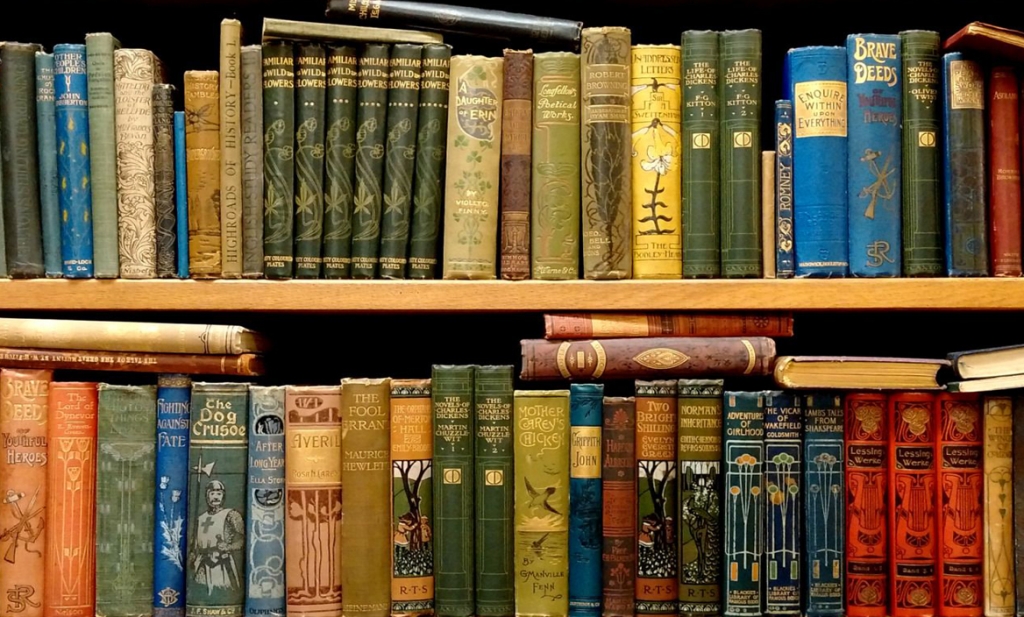 Books
Books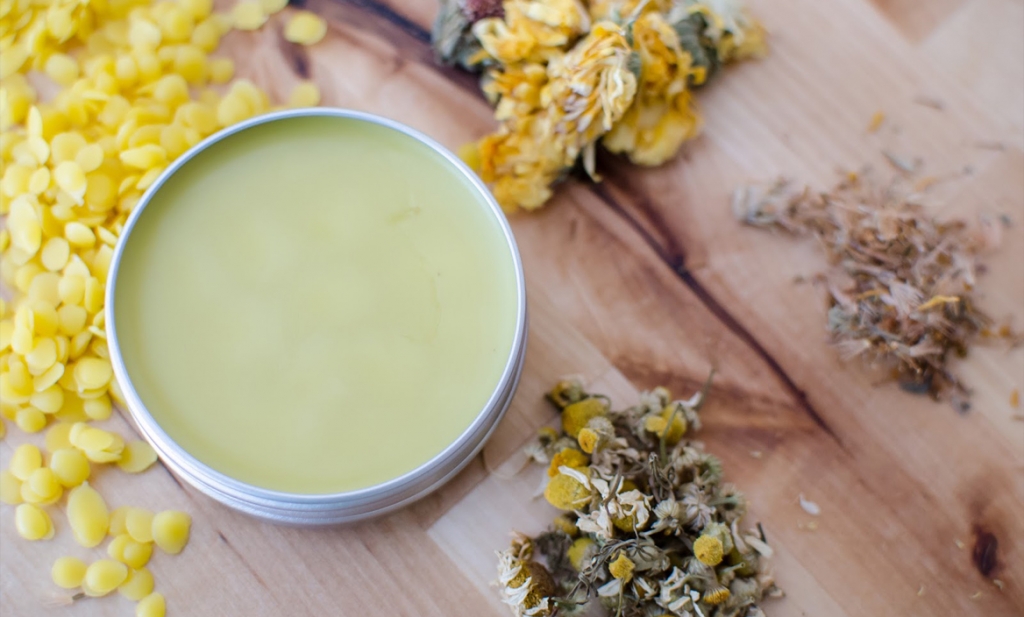 Salves, Creams, Sunblock
Salves, Creams, Sunblock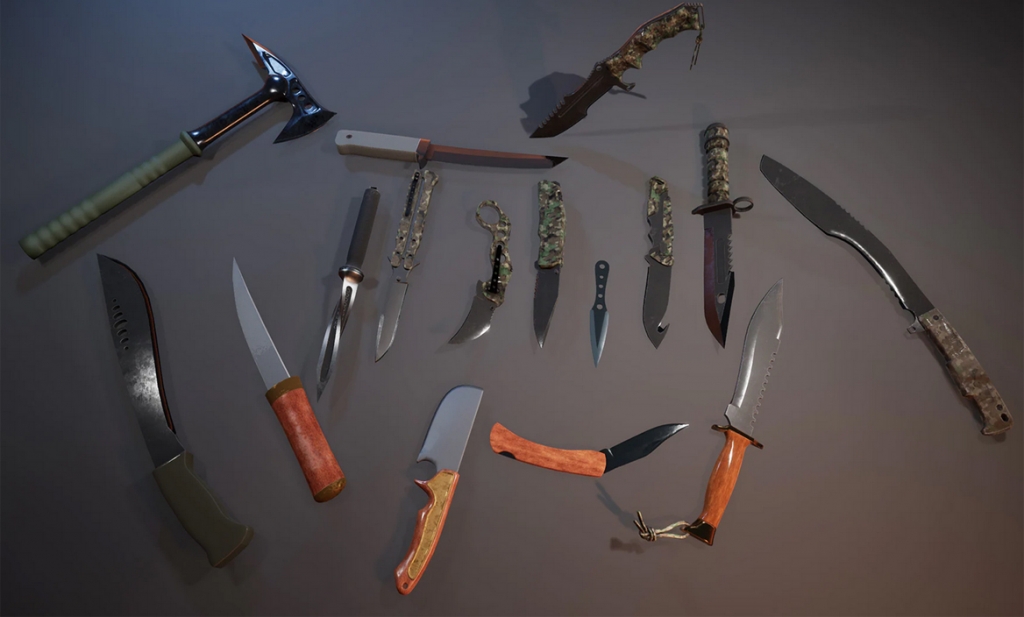 Set of Knives
Set of Knives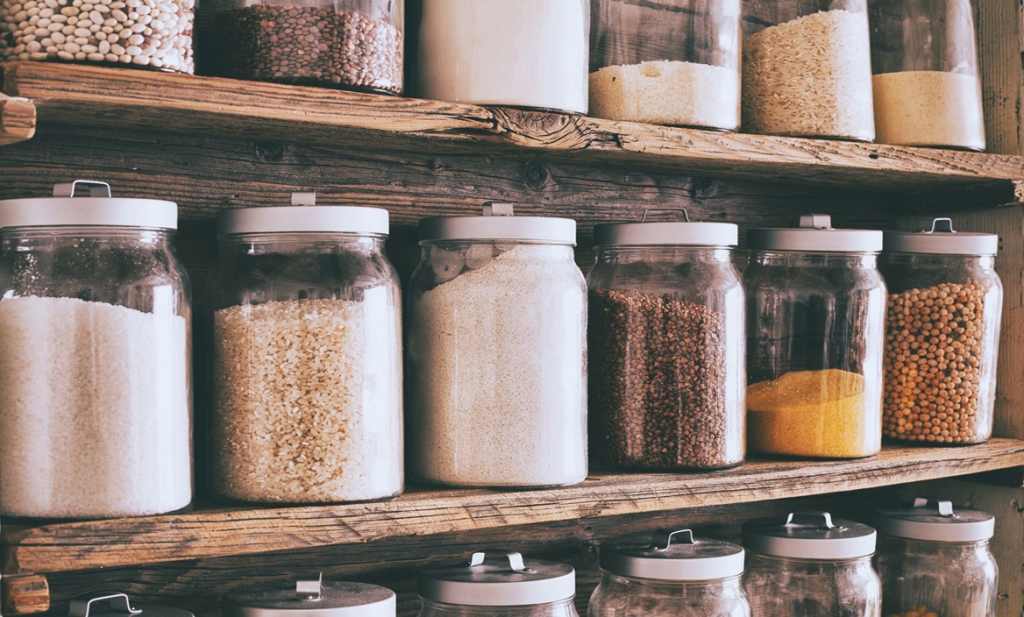 Cooking Basics – Baking Soda, Flour, Oils
Cooking Basics – Baking Soda, Flour, Oils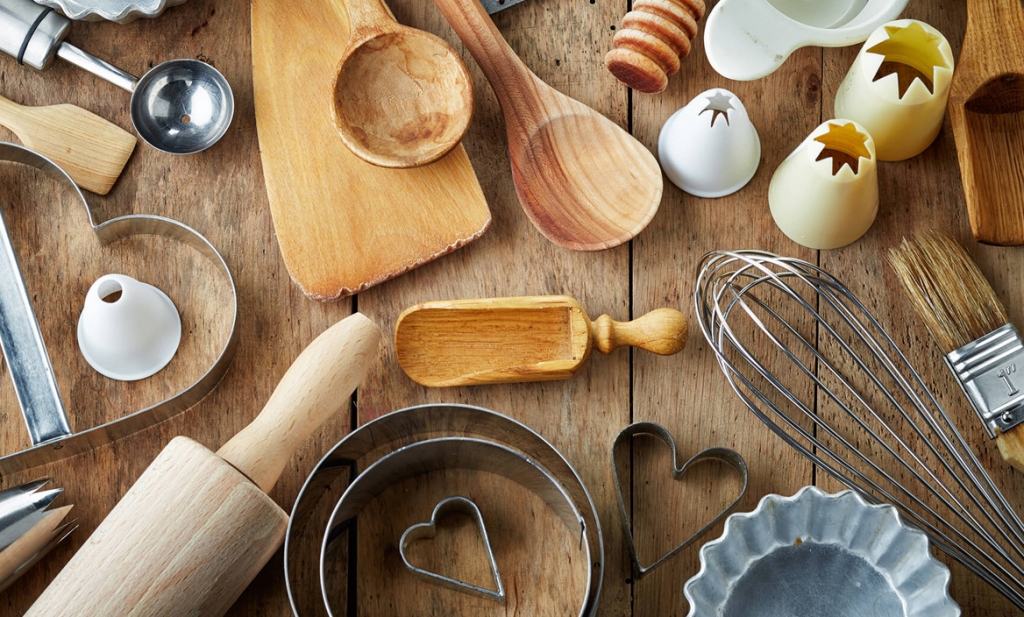 Cooking Basics – Utensils, Measuring Cups, Spoons
Cooking Basics – Utensils, Measuring Cups, Spoons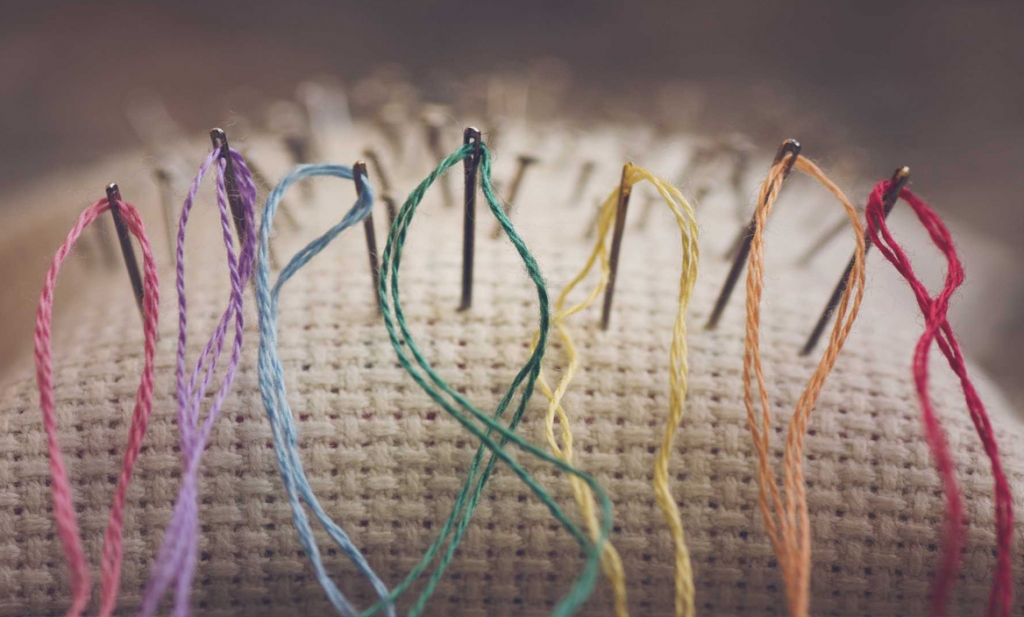 Needles and Thread
Needles and Thread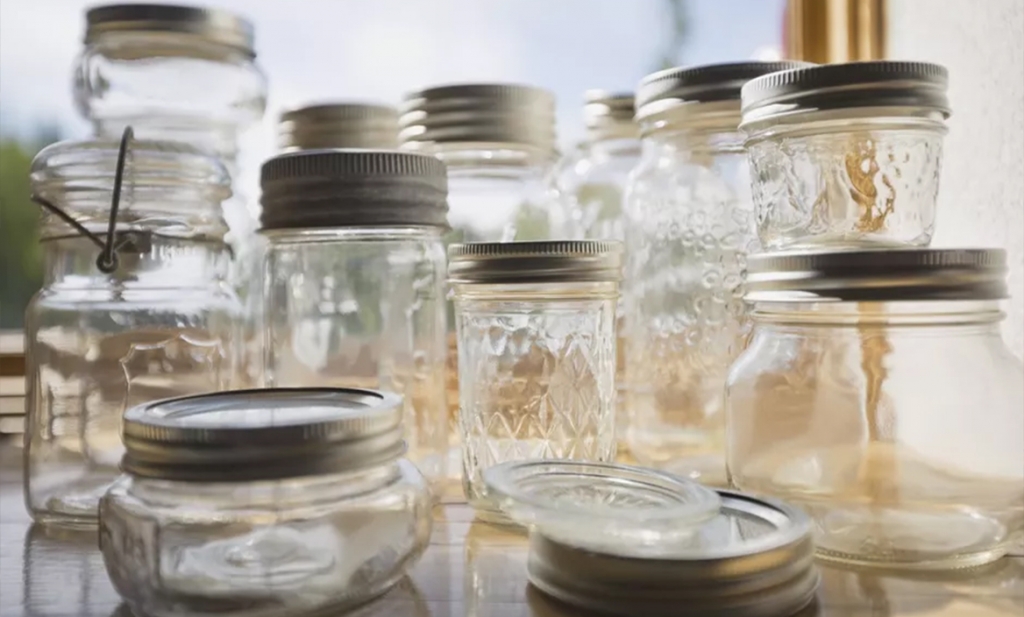 Jars and Other Reusable Food Storage Containers
Jars and Other Reusable Food Storage Containers